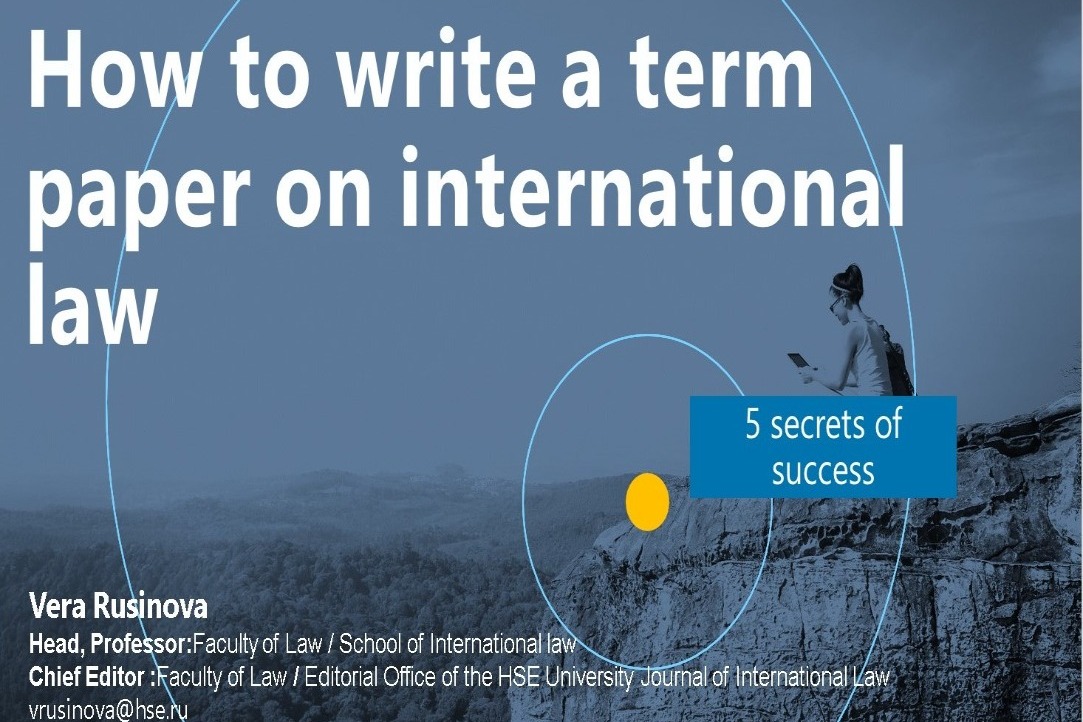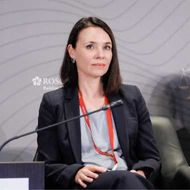- A
- A
- A
- ABC
- ABC
- ABC
- А
- А
- А
- А
- А
- HSE University
- Faculty of Law
- School of International Law
- News
- "Secrets of success" from V. Rusinova
-
School
- About the School
- Research
- Academics
- "HSE University Journal of International Law"
-
Research and Study Laboratories and Groups
-
Research and Study Laboratories
-
Research and Study Groups
-
- Research and Methodology Units
- HSE Research Seminar on International Law
- Ph.D. Seminar
- Undergraduate track ‘International Law’
-
Projects
-
Status: active
- Applied project «Philip C. Jessup international law moot court competition training 2023-2024»
- Applied project 2024-2025 “Preparation for the Willem C. Vis Moot Competition, season 2024-2025”
- Fundamental Research Project "Legal Mechanisms for Overcoming Inequality"
- Participation of Young Lawyers as Clerks of the International Commercial Arbitration Court at the Chamber of Commerce and Industry of the Russian Federation
- Research project: International Competition ‘Dispute Resolution in the EAEU–2024’: Preparation and Participation of the Faculty of Law's Team
-
Status: completed
-
- Staff Members
-
Educational programs
- Bachelor's Programmes
- Master's Programmes
- Doctoral School of Law
Moscow, 3 Bolshoy Trekhsvyatitelsky Pereulok, rooms 227, 228b

E-mail: svetlana.smirnova@hse.ru
Located at a crossroads of global, regional, and national interests, contemporary international law affects almost all spheres of society. The School of International Law keeps pace with significant international events and legal adjudication in order to provide hands-on education that prepares future lawyers and legal scholars for the demands of the current legal landscape. The School is at once a ‘think tank’ that provides expert analysis and a producer of top legal experts and lawyers in international law.
Olga Starshinova, Elena Murashko.
Chinese Journal of International Law. 2025. Vol. 24. No. 3.
In bk.: Sanctions, Business and Human Rights. Clarity Press, 2025. P. 346-366.
 MANDATORY CORPORATE HUMAN RIGHTS DUE DILIGENCE MODELS: SHOOTING BLANKS?
MANDATORY CORPORATE HUMAN RIGHTS DUE DILIGENCE MODELS: SHOOTING BLANKS?
Rusinova V., Sergei K.
Law. LAW. Высшая школа экономики, 2021

"Secrets of success" from V. Rusinova

The training was based on the idea of the difference between an essay and a research paper, which can be either a term paper or a "diploma", or an article or even a dissertation. Thus, an essay is a logical, structured work that systematises information on a certain topic and contains the author's own assessment of the information presented. A research paper also fulfils these criteria, but, unlike an abstract, it is a study, the results of which contribute to the development of a certain topic: a study, unlike an abstract, generates new knowledge.
The speaker shared five "secrets of success" for writing any research paper, highlighting: the value of understanding one's own "mission", formulating a research question, conscious selection of methodology and methods, proper search for sources, information, and empirical materials, and, finally, the importance of writing a paper in a problem-based rather than descriptive style.
The participants of the training shared their impressions.
Nikita Romanov:
"The advice that the term paper should reflect the student's desire to help people is the most important. Also, it was very useful to learn about different writing methods and sources of information. In addition, I remembered that the term paper should not be descriptive".
Daria Shishkanova:
"It was really very useful - the information was either new to me or helped me to better understand what I had previously heard about in general terms. It became clearer in which direction to work further. I found the advice about mission important - I thought about it, as I initially chose the topic mainly because of academic interest. Specific examples of research questions were valuable for me, which showed me how to formulate it correctly in order to come to new knowledge. I will also use sources on international law - not all of them I knew".
- About
- About
- Key Figures & Facts
- Sustainability at HSE University
- Faculties & Departments
- International Partnerships
- Faculty & Staff
- HSE Buildings
- HSE University for Persons with Disabilities
- Public Enquiries
- Studies
- Admissions
- Programme Catalogue
- Undergraduate
- Graduate
- Exchange Programmes
- Summer Schools
- Semester in Moscow
- Business Internship
- © HSE University 1993–2025 Contacts Copyright Privacy Policy Site Map
- Edit

